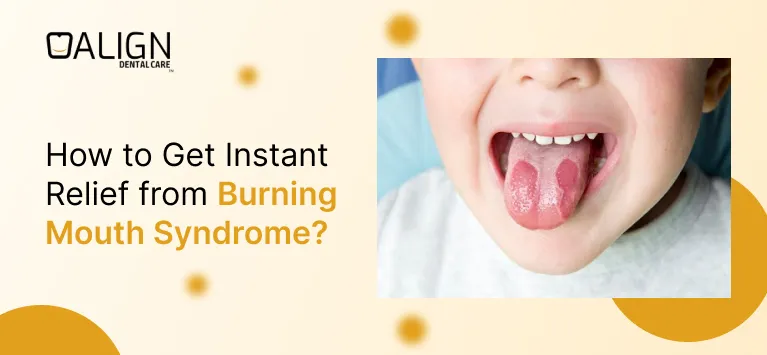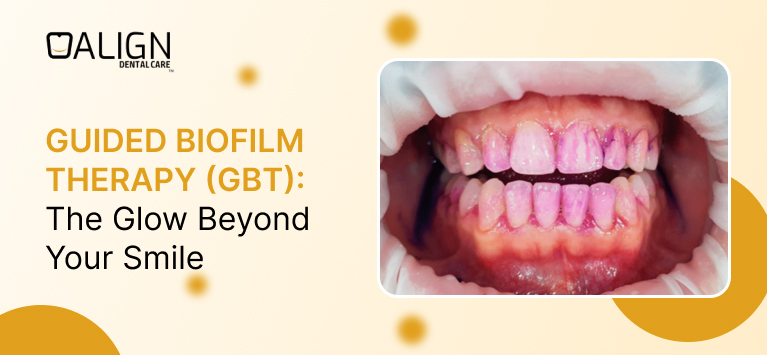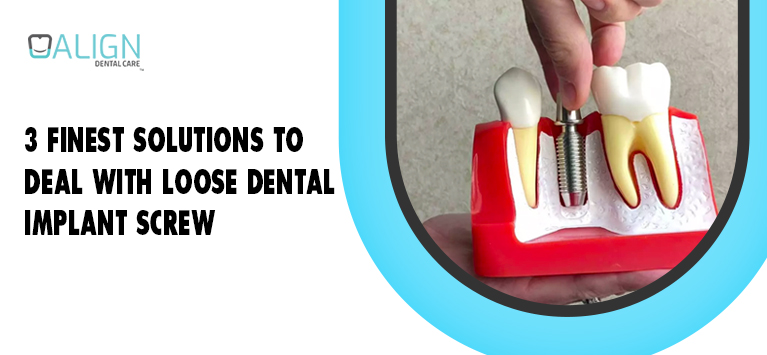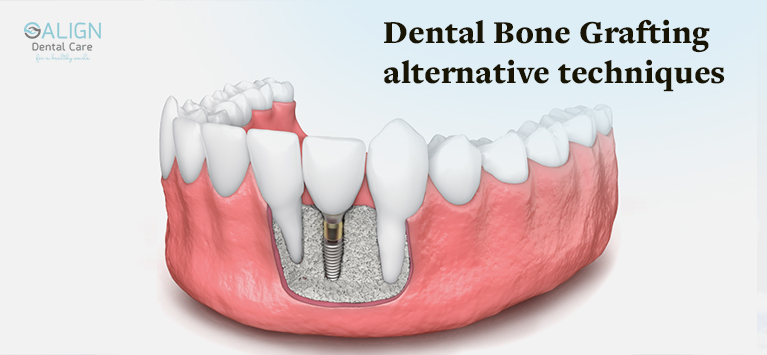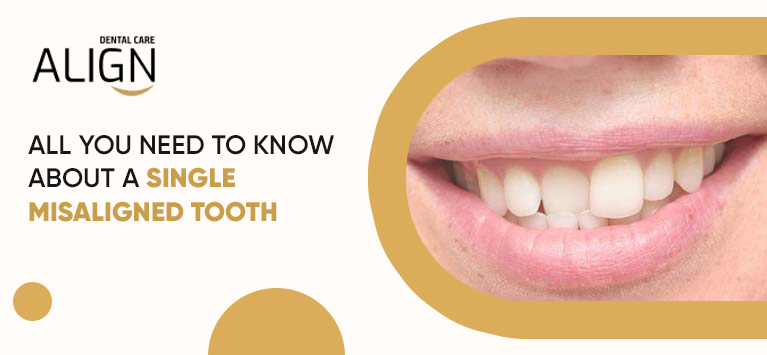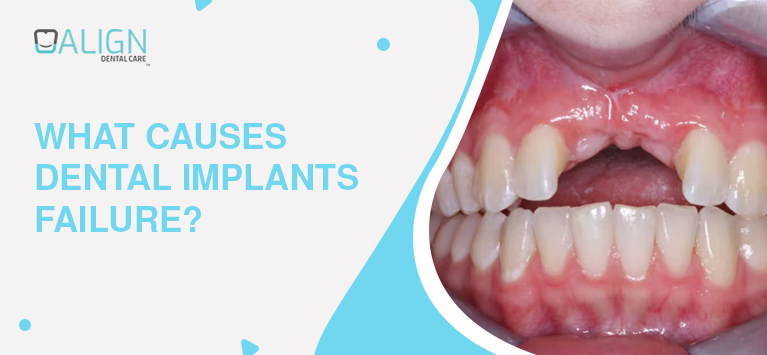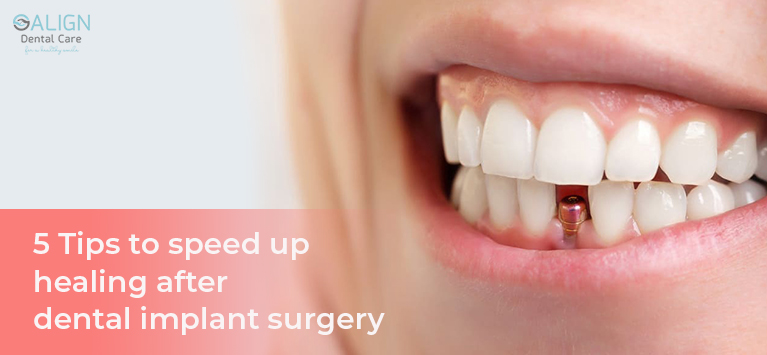
7 Signs that show your implant tooth is infected
The implant surgery involves replacing the root of a missing tooth by implanting a metal screw into the jaw bone and mounting a tooth-shaped crown on the implant post. As the false tooth is fixed with an artificial tooth root, the implant teeth can function like a natural tooth and efficiently restores the functionalities of the tooth.
Even though the tooth implants are robust and cannot be degraded like a human tooth, they are also a risk of infection.
What causes dental implant infections?
In general, infection in the implant teeth arises due to bacterial accumulation in the gum surfaces around the implants. Such infection leads to a gum disease called “Peri-implantitis” which can assassinate the tissues around the implant and weaken the fixed implant tooth. Habits like smoking and poor oral hygiene inherit the harmful microbes and provide a way to infection around the implants.
On the other hand, the allergic reactions provoked by the foreign object (metal implant post), genetics also lead to implant failure. Common factors that put the implant teeth at risk of infection include:
- Compromised immune system
- Diabetes
- Smoking
- Poor Oral Hygiene
- Poor workmanship in fixing implants
- The low density of bones
- Improper sterilization of dental tools before implant
- In a rare case, the implant will be refused by the body as a foreign body
Now the question is, “How can you predict that the implant fixed is infected?”. Here are the common signs that exhibit the implants are infected.
Warning signs of an infected implant
1) Chronic Pain and Fever
Pain in the implant fixed region is not uncommon. Pain in the treated region is a sign of the healing process. It lasts for some days after implantation and goes off on its own. In contrast, pain in the implant teeth after a long time is abnormal. If the pain radiates and becomes worse when you bite a thing with the implant, it is abnormal and indicates that the fake tooth is a risk.
Aggregation of bacteria in the implant fixed region is effective to influence the body’s defense system. When our immune system cannot fight efficiently against the bacteria, it will cause fever.
2) Redness or Swelling in the gums
Gum swelling is a common sign associated with various oral complications. You don’t worry regarding it.
But people who get implants should not ignore this because they have higher chances of peri-implantitis mentioned above. Similar to pain in the implantation site, inflammation in the gum around the dental implant also exists for some time. If the gums inflamed on and show reddish spots with no reason, then implant infection may be a reason for that. If this infection is left untreated, it will spread to other areas of the mouth and also into your body through the bloodstream causing various problems.
3) Implant is shifting or loose
If your implant is correctly anchored in the jawbone, it won’t sense any difference than normal teeth. Your implants are that much natural; in fact, no one knows that you are wearing an implant unless you say to them. If your implants sense unnatural or shake back and forth, you should visit your dentist soon. This failure state occurs if there is bone loss around the implant or some bacterial infection. This condition can be easily identified, if you leave this casually, it will cause serious damage to the jawbone.
4) Puss and bleeding
Pus around a tooth implant occurs due to infection in the gums or complications in the hard and soft tissues around the implant. If it is left untreated, it will penetrate deeper and weaken the implant’s integration with the jaw bone. Likewise, bleeding in gums around the fixed dental implant while brushing also needs dental attention.
5) Bad Breath and Unpleasant taste
Apart from oral bacteria, dental diseases and health disorders, infected implants also produce nasty smell from the mouth. When the implants fixed are infected, it is followed by microbial leakage around the implant teeth. It causes bad breath and alters the taste in the mouth. Then the people with infected implants sense a different taste. The reason for the infection of these implants is also due to the usage of bad quality implant materials.
6) Exposure of implant threads
This is the primary warning signal which needs immediate care. Gum recession occurs when the gums are compromised by bacteria. When the gums recede, the components of implants like abutment and fixture are visible.
In such cases, the chances are higher for the implants to become loose and wiggle. Then it causes pain while biting or other discomforts.
7) Chewing Difficulty
If you don’t use dental implants made of titanium, you may have difficulty chewing even if the area isn’t infected. Since Titanium implants naturally fuse with bones and last longer with good strength, you can chew your favorite food normally.
Treatment for Dental implant infection or failure
There are some possibilities for why your dental implant can fail, but “osseointegration”(improper bonding of implants with the jawbone) is the most common reason. Dental implants fail in two cases. This failure of implants occurs due to the inflammation in the bones surrounded by implants.
Implants fail due to two possible reasons
Breakage of Implant
If an implant is failed and the jawbones are not damaged, you don’t need any major surgery. You should inform your dentist to avoid further damage. A fresh implant will be replaced with the damaged ones. A deep analysis is made to find the reason for failure to fix the new implant to get a long-lasting life.
As pointed out earlier, another common reason for implant failure is osseointegration. There are two methods for a dentist to fix this problem. It purely relies on whether the implant is infected or bone loss is severe or medium.
When bone loss is severe
The bone grafting process is done for a severe bone loss before the implant is removed. This process helps to grow new bone.
When bone loss is medium
The dentist will analyze the cause of the inflammation leading to bone loss. After that, the failed implant will be removed, and the affected area is left until it gets healed before the implant is replaced. But the healing process may take a couple of months.
Our dentists are well expertise in fixing these problems. You can book an appointment to find the best solution for all your problems.
Conclusion
Infections in the implant should not be ignored because they do not only lead to the weakening of implants but also provoke various health complications. Removing the infected implant tooth and replacing it with a new one is required to pervert the subsequent effects associated with the condition. In certain cases, treatment can be provided without extracting the implants but the dentist can decide it after analyzing the infection. It is important to get a dental consultation immediately after noticing the mentioned signs in the implants.






